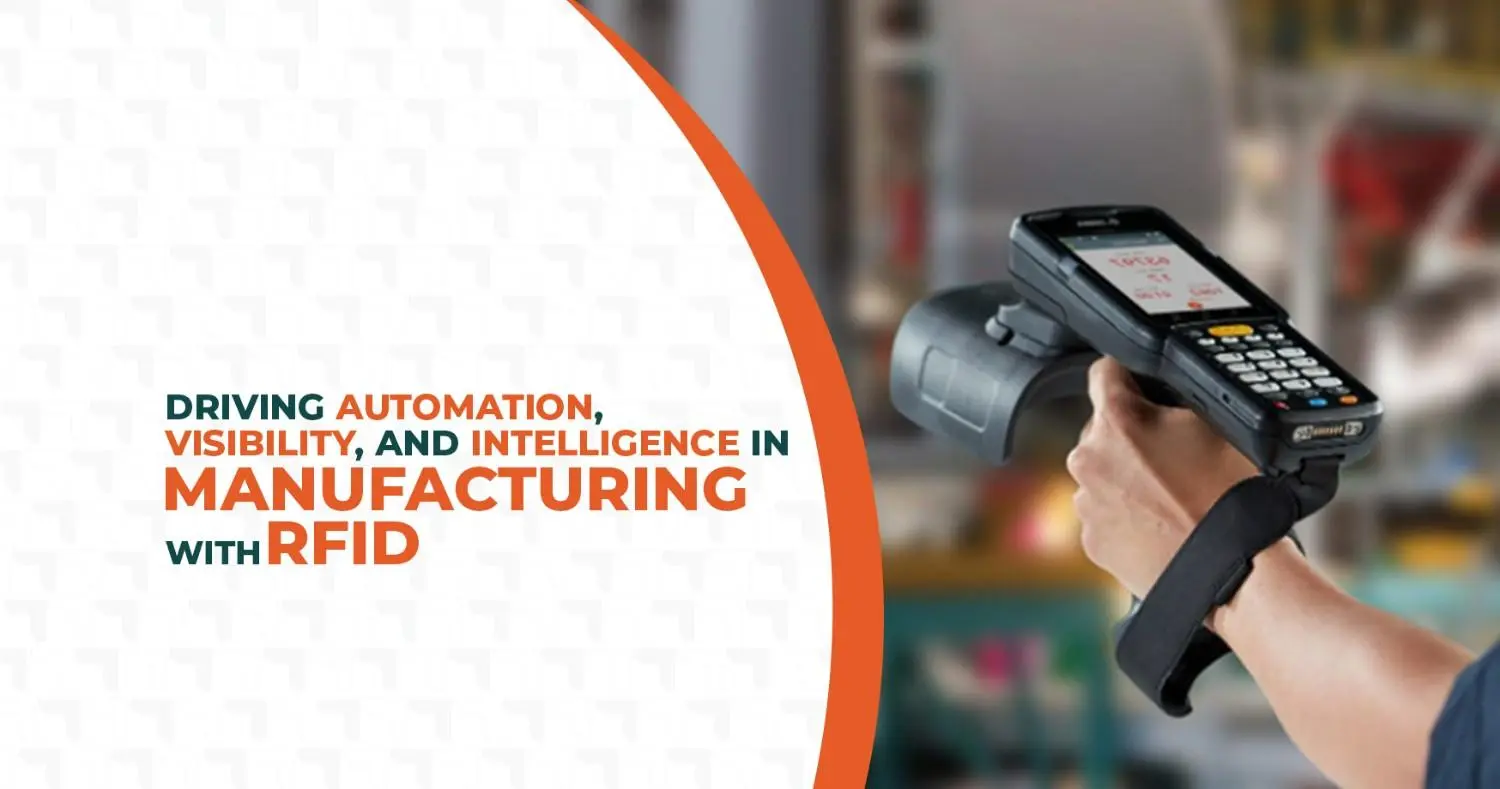
MES for Industry 4.0
MES for Industry 4.0 is a connected production management system that brings intelligence and control to modern manufacturing. It links machines, operators, and enterprise systems to monitor, record, and optimize every process in real time. By managing areas like BoM handling, quality checks, labour scheduling, tool usage, and rework tracking, MES ensures that each production step runs smoothly and consistently.
With Industry 4.0, factories are becoming smarter through IoT-enabled equipment, cloud connectivity, and advanced analytics. These technologies bring huge opportunities for efficiency, but they also create challenges such as system integration, data synchronization, and process visibility Read this blog to gain complete understanding how MES for Industry 4.0 traces system anomalies in real-time, giving complete visibility and automation of quality-promising tasks.
The Role of MES in Industry 4.0
A Manufacturing Execution System (MES) for Industry 4.0 connects business systems with production activities on the shop floor. It acts as the operational layer between ERP, PLM, and machine-level controls, turning production plans into real-time actions. As manufacturing processes become more connected and data-driven, MES helps manage the growing need for accuracy, visibility, and traceability in day-to-day operations.
1. Real-Time Data Collection and Visibility
MES collects data directly from machines, PLCs, IoT sensors, and operator terminals. It records process parameters, material usage, and production status as they occur. This continuous data flow provides a clear view of operations, helping teams monitor cycle times, line efficiency, and deviations without manual checks.
2. Improved Operational Efficiency
MES automates job scheduling, routing, and reporting. It assigns work orders based on equipment availability, resource status, and production priorities. This coordination reduces idle time, limits manual intervention, and helps maintain consistent throughput across production lines.
3. Enhanced Quality Control
MES integrates in-process quality checks and monitors key variables during production. It identifies deviations early, issues alerts, and enforces corrective steps before defects move to the next stage. Each batch or component is recorded digitally, ensuring compliance and traceability.
4. Data-Driven Decision Making
Collected production data is processed into performance indicators such as OEE, yield, and utilization. This helps supervisors identify bottlenecks and gives management accurate insights for improving output, cost efficiency, and resource planning.
5. Integration with IoT and AI
When linked with IoT technology and AI tools, MES supports predictive maintenance, process optimization, and better resource control. Equipment data and system analytics work together to prevent unplanned downtime and support data-based adjustments in real time.
Key Features of a Smart MES System
MES for Industry 4.0 actively drives performance, efficiency, and flexibility on the production floor. These systems combine advanced technologies with deep integration capabilities. When MES and Industry 4.0 work together, they create a manufacturing environment that is fast, adaptive, and insight-driven.
1. Real-Time Monitoring and Reporting
MES continuously captures inputs from sensors, PLCs, and operator terminals to monitor cycle times, machine states, OEE, and quality indicators. This information is presented on dynamic dashboards, giving production teams a live view of floor performance.
Operational and Business Outcomes:
- Quick response to process deviations and equipment anomalies
- Improved adherence to production targets and takt time
- Reduction in manual data entry and operator dependency
- Reliable audit trails for compliance and traceability
2. Cloud-Based Access and Scalability
Cloud-enabled MES architecture allows manufacturers to centralize data from multiple plants on a single platform. It supports multi-user access, remote supervision, and standardized process control across all locations.
Operational and Business Outcomes:
- Centralized management of configurations, reports, and KPIs
- Faster rollout of updates, process rules, or new product introductions
- Scalable setup that accommodates new lines or equipment easily
- Lower IT maintenance overhead and simplified data governance
3. Predictive Maintenance Alerts
MES collects equipment usage data and integrates it with sensor readings like temperature, vibration, or pressure. Using trend analysis and predefined thresholds, it predicts when a machine is likely to fail. The system then sends maintenance alerts before breakdowns occur. This reduces unplanned downtime, prevents expensive repairs, and keeps production schedules stable.
Operational and Business Outcomes:
- Shift from time-based to condition-based maintenance
- Improved resource allocation for maintenance planning
- Reduced maintenance costs through precise part replacement cycles
- Fewer production slowdowns caused by late service interventions
4. Production Planning and Scheduling Automation
The MES automatically plans and executes production orders based on resource availability, machine status, and priority rules. It adapts schedules in real time when delays, material shortages, or urgent orders arise. This automation ensures better load balancing, minimizes idle time, and aligns production with customer delivery expectations.
Operational and Business Outcomes:
- Increased throughput through balanced resource utilization
- Minimized queue times between workstations
- Accurate production sequencing based on live shop-floor data
- On-time order completion and improved delivery reliability
5. Integration with ERP, PLM, and Supply Chain Systems
A smart MES for Industry 4.0 is designed to communicate with enterprise systems like ERP, PLM, and WMS software. It synchronizes data across business planning, design, inventory, and shop floor execution. This integration eliminates manual data entry, improves order accuracy, and enables a unified workflow from sales to shipping.
Operational and Business Outcomes:
- Real-time alignment of inventory, work orders, and quality data
- Faster reconciliation between ERP transactions and shop-floor events
- Enhanced traceability from raw materials to finished goods
- Fewer data discrepancies across departments
6. AI-Based Analytics and Recommendations
MES systems equipped with AI process large volumes of shop floor data to detect hidden patterns and inefficiencies. Based on this analysis, the system suggests actions like adjusting process parameters, reallocating labor, or modifying schedules and improves the output while reducing costs. These AI-driven insights help teams move from reactive fixes to proactive optimization.
Operational and Business Outcomes:
- Identification of hidden inefficiencies and micro-stoppages
- Predictive insights for process optimization and yield improvement
- Intelligent parameter tuning for stable production quality
- Continuous improvement through data-driven decisions
Benefits of MES in Industry 4.0
In MES for Industry 4.0, value does not come from dashboards alone. It comes from closing gaps between planning, execution, and actual machine behaviour. MES sits where ERP intent meets shop-floor reality. That is where most inefficiencies live. And that is where the real gains are created.
1. Increased Productivity
Productivity loss rarely comes from machines running slow. It comes from waiting, rework, unclear priorities, and decisions made without context. MES in Industry 4.0 connects production orders to machine states, OEM parameters, and operator actions in real time. When OEE losses are visible by shift, line, and asset, bottlenecks stop being debated and start being fixed. Schedules adjust based on real output, not assumptions. Throughput improves because work flows with fewer interruptions, not because people are pushed harder.
2. Cost Reduction
Cost leakage hides inside micro events. Short stops, idle energy draw, excess changeover time, and unplanned maintenance. MES and Industry 4.0 bring these events into view by linking machine data, downtime reasons, and maintenance triggers. Predictive insights reduce reactive maintenance. Energy usage aligns with actual production. Material waste is traced back to specific runs, not written off broadly. Operating costs stabilise because surprises reduce, not because budgets are cut blindly.
3. Better Quality Assurance
Quality issues rarely start at final inspection. They begin upstream with material deviations, parameter drift, or process skips. MES integrated with track and trace and PLM data maintains genealogy across batches, lots, and serialised units. When deviations occur, containment becomes precise. Recalls shrink in scope. Compliance reporting becomes evidence based, not manual. Stakeholders gain confidence because quality data is tied to execution, not reconstructed later.
4. Agility and Flexibility
Market changes expose rigid plants. MES in Industry 4.0 enables controlled flexibility by separating process logic from static schedules. Batch sizes change. Routes are adjusted. Urgent orders are inserted without losing control of WIP. Operators follow updated instructions instantly. Managers see impact before execution, not after the shift ends. Agility improves because change is absorbed by the system, not pushed onto people.
5. Workforce Empowerment
Frontline teams struggle when targets are unclear and data arrives too late. MES provides real time visibility into KPIs such as OEE, yield, and downtime reasons at the point of work. Operators understand what matters now. Supervisors intervene earlier. Decision quality improves because context is shared, not escalated. Engagement increases when actions have visible outcomes.
Challenges of Implementing MES in Industry 4.0
MES in Industry 4.0 often faces challenges even before go-live. The issue is rarely the capability of the platform. It comes from the complexity of real production environments. Legacy systems, undocumented processes, and unclear ownership become visible as soon as execution data is captured. When these gaps are not addressed early, MES is limited to reporting outcomes rather than driving execution control.
1. Integration with Existing Systems
MES sits between planning and execution, which means it touches ERP schedules, SCADA signals, machine controllers, and sometimes engineering definitions. These systems were rarely designed to work together. Production orders may change mid-shift. Machines may run ahead or fall behind plan. Events occur faster than ERP cycles can absorb. Without clarity on how data moves and who owns each decision point, integration becomes slow and brittle. The problem is not connection. It is alignment.
2. Data Quality and Accuracy
MES depends on what actually happens on the floor, not what was planned. Missed downtime reasons, delayed confirmations, and manual overrides create gaps that compound across shifts. When execution data is incomplete, KPIs like OEE lose meaning. Supervisors stop trusting dashboards. Decisions revert to instinct. Data discipline at the source matters more than advanced analytics downstream.
3. User Adoption and Change Management
Operators and supervisors already manage pressure, targets, and interruptions. MES adoption drops when it adds steps without reducing effort. Systems gain acceptance when they help teams see problems earlier, reduce repeat errors, and remove guesswork from daily decisions. Adoption improves when MES reflects real workflows and when feedback loops close quickly, not when training focuses only on features.
4. Customisation Complexity
Every plant believes it is unique. Some differences are structural. Many come from workarounds built over time. Excessive customisation locks these habits into the system, making upgrades harder and change slower. The challenge is deciding which process variations protect output and which ones quietly reduce efficiency. MES works best when it supports standard execution and exposes exceptions instead of absorbing them.
5. Cost and Budget
MES costs are visible early. Benefits show up gradually. This gap creates hesitation at the stakeholder level. When value is discussed in abstract terms, approval slows. When MES is tied directly to reduced downtime, higher line utilisation, fewer quality escapes, and faster audits, alignment improves. Budget decisions become easier when impact is operational, not theoretical.
6. Security and Compliance
MES connects machines, people, and enterprise systems. That connection increases exposure. Role-based access, traceable actions, and controlled data flows are essential once execution data leaves the shop floor. Compliance requirements demand proof, not summaries. Security issues often arise from unclear responsibilities rather than missing technology.
How to Choose the Right MES in Industry 4.0
Choosing MES in Industry 4.0 is an execution decision, not a software comparison. The system must support current production realities while remaining stable as volumes, assets, and process complexity increase. Evaluation should focus on how MES behaves under change, how it handles exceptions, and how clearly it links execution data to business outcomes.
1. Scalability and Flexibility
MES should scale across production lines, plants, and shifts without reworking core logic. As throughput increases or product mix changes, execution rules, routing, and reporting must remain consistent. A scalable MES solution supports higher transaction volumes, additional assets, and new plants while maintaining performance. Flexibility matters when production strategies change, but stability matters more when operations expand.
2. Execution Enforcement
Manufacturing processes are often well defined but unevenly followed. Manual checks depend on experience and supervision, which vary by shift and location. This leads to gradual drift in execution quality. A capable MES enforces process steps, validations, and approvals directly within the workflow. Operators are guided through required actions, and deviations are blocked or escalated based on defined rules. Execution consistency improves without adding manual oversight.
3. Exception Handling
Production disruptions cannot be eliminated, only managed. Equipment constraints, material shortages, and urgent order changes require decisions that fall outside standard workflows. When these decisions happen informally, traceability is lost. The right MES supports structured exceptions. It records what changed, when it changed, and who authorised it. Production continues with visibility intact, preventing ad hoc workarounds from becoming normal practice.
4. Planning Alignment
Production plans are built on assumptions that rarely hold throughout a shift. Capacity constraints, micro-stoppages, and quality holds create divergence. Without feedback, the same planning errors repeat. An effective MES captures execution outcomes in real time and feeds them into operational planning. Adjustments occur sooner. Schedule stability improves. Planners work with reality instead of averages.
5. System Boundaries
When responsibilities between MES, ERP, and shop-floor systems are unclear, teams duplicate work and reconcile data manually. This slows decision-making and creates conflicting reports. A strong MES defines clear execution ownership. It manages work instructions, confirmations, and deviations, while upstream systems handle planning and aggregation. Clear boundaries reduce friction and support faster operational decisions.
6. Scope of Customization
MES value declines when each plant requires unique logic, reports, and integrations. Support effort increases, and system behaviour becomes unpredictable across sites. The right MES supports a standard execution model that can be configured for local constraints. Core logic remains unchanged. New plants can be added without restarting design, enabling controlled growth.
7. Vendor Readiness
MES operates during live production. Implementation delays, unresolved issues, or poor escalation directly affect output. Vendor capability matters beyond product features. A reliable vendor provides structured rollout methods, production-grade support, and continuity across releases. They understand operational impact and prioritise system stability during change.
Future of MES in Industry 4.0
Today’s MES for Industry 4.0 is a smart, connected system that supports predictive, automatic, and eco-friendly manufacturing. Its future depends on working closely with new technologies to provide real-time control and help make better decisions. Let’s learn the trends that actively getting adapted in the Industry 4.0 space:
1. Blockchain for Supply Chain and MES
MES platforms integrated with blockchain record immutable batch data and automate compliance via smart contracts. Linking MES to IoT sensors allows secure, transparent traceability of conditions like temperature or humidity. Shared ledgers give suppliers and customers real-time visibility into order and production status.
2. Edge Computing in MES
Edge devices process MES data locally for instant response to critical events. TinyML models detect anomalies directly on machines without cloud dependency. With 5G and federated learning, MES coordinates across distributed systems while ensuring low latency and data privacy.
3. Sustainability and MES
MES supports sustainability by identifying high-energy processes through clustering algorithms and shifting tasks based on demand-response strategies.. Embedded lifecycle analysis tools calculate carbon impact per batch, aligning production with environmental goals.
Conclusion
A well-chosen MES connects people, machines, and workflows to create a more coordinated and efficient production environment. It lowers operating costs, allows for flexible manufacturing, and helps businesses stay aligned with industry regulations. With the right Manufacturing Execution System in place, businesses can turn their production units into smarter, more responsive environments where every step is tracked, optimized, and aligned with overall goals.
Let us help you build a connected factory. Explore our MES integration services and see the difference. Reach out for a digital readiness audit.
FAQs
1. What is MES in Industry 4.0?
It is a digital system that helps manufacturers monitor, control, and improve their production process using real-time information from machines and operations.
2. How does MES support smart manufacturing?
MES supports smart manufacturing by giving real-time updates, automating repetitive tasks, and helping teams adjust quickly based on what's happening on the production floor.
3. Why is MES important for Industry 4.0?
MES helps factories function in a smarter manner by bringing more control, better traceability, and faster decision-making into everyday production activities. It turns data into action.
4. Is cloud-based MES suitable for smart factories?
Yes, cloud MES works well for modern factories because it offers flexibility, easy access to data, and smooth connections with other digital tools like IoT.
5. How does MES improve manufacturing efficiency in Industry 4.0?
It helps teams work faster and smarter by reducing downtime, avoiding errors, and using live data to improve production speed and consistency.



